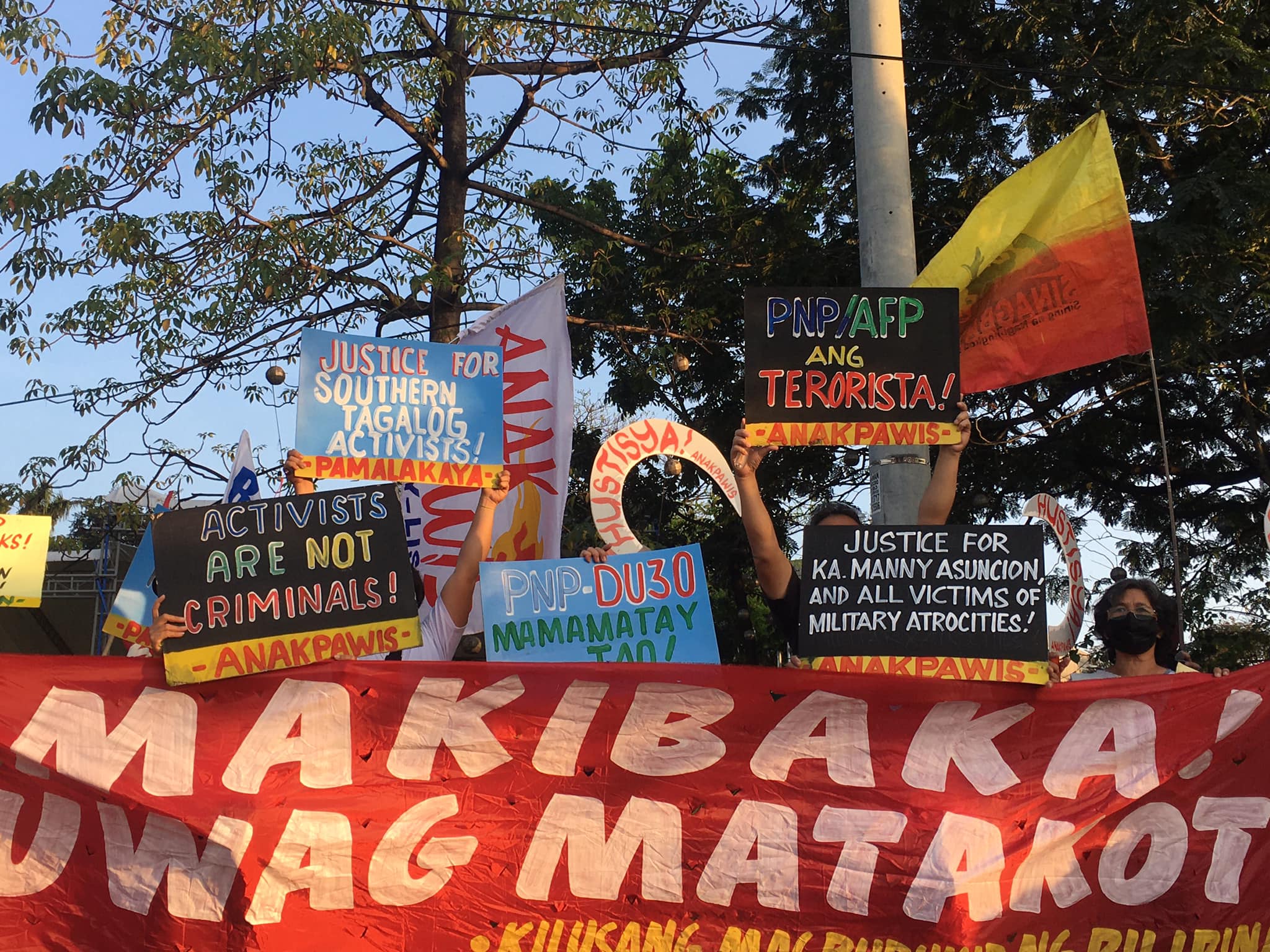Karapatan, the human rights organization, yesterday condemned the killings of nine activists in several provinces in Southern Tagalog, in what the group called were a series of raids that were reminiscent of the government’s bloody drug war.
The busts, which Karapatan dubbed “Bloody Sunday,” killed six people in Rizal province, two in Batangas, and one in Cavite. The activists were supposed to have been arrested by the police and military for allegedly illegally possessing firearms and explosives, but most of them were killed in their own homes instead.
Read: Parlade strikes again, says Colmenares, Makabayan lawmakers are communists
The dead were identified as Manny Asuncion, coordinator of the Cavite chapter of Bagong Alyansang Makabayan; fisherfolk leaders and couple Chai Lemita-Evangelista and Ariel Evangelista; and Melvin Dasigao and Mark Lee Coros Bacasno, members of urban poor group Sikkad Montalban. The rest have yet to be named by Karapatan.
The Evangelistas were allegedly killed in the presence of their 10-year-old son, who hid underneath a bed when government forces barged in.
“[L]ike the Gestapo-esque police raids in Negros which led to the mass arrests of activists and progressive leaders through search warrants manufactured from the government’s factory of lies, the Duterte regime is now unleashing the unbridled horrors of fascism and the crackdown on dissent upon the Southern Tagalog region using the same dirty tactics,” Karapatan Secretary General Cristina Palabay said in a statement.
Read: Duterte goes on red-tagging spree, accuses lawmakers and activists of being communists
Palabay alleged that the police used “bogus search warrants” and planted pieces of evidence in the activists’ homes to justify the raids which were allegedly orchestrated by Major General Antonio Parlade Jr., the chief of Southern Luzon Command who has become known for red-tagging countless personalities, from celebrities to activists.
Red-tagging is the practice of accusing an individual or organization of supporting the communist party. The United Nations Human Rights Council has called out the Duterte administration for constantly red-tagging critics, activists, and journalists, saying that it leaves “a chilling effect on the legitimate work of human rights defenders in the country.”
Meanwhile, Phil Robertson, the Deputy Asia Director of Human Rights Watch, said he was “deeply” concerned over the activists’ killings, adding that the massacre was “clearly part of the government’s increasingly brutal counter-insurgency campaign” that aimed to eliminate the Communist Party of the Philippines.
Read: Cops arrest editor of red-tagged news site in Mandaluyong
“The fundamental problem is this campaign no longer makes any distinction between armed rebels and noncombatant activists, labor leaders, and rights defenders,” Robertson said in a statement sent to the media.
Robertson urged the Duterte government to “act now to investigate the use of the lethal force in these raids, stop the mayhem and killings that have gone hand in hand with the practice of red-tagging, and respect the rights of Filipinos to exercise their civil and political right, and dissent.”
The Philippine government has been waging a war against the communist party for the last 53 years, the longest insurgency in Asia. In an effort to quell the rebellion, the government enacted the Anti-Terror Law, which observers said is aimed to quell legitimate criticism of the Duterte administration.





Reader Interactions